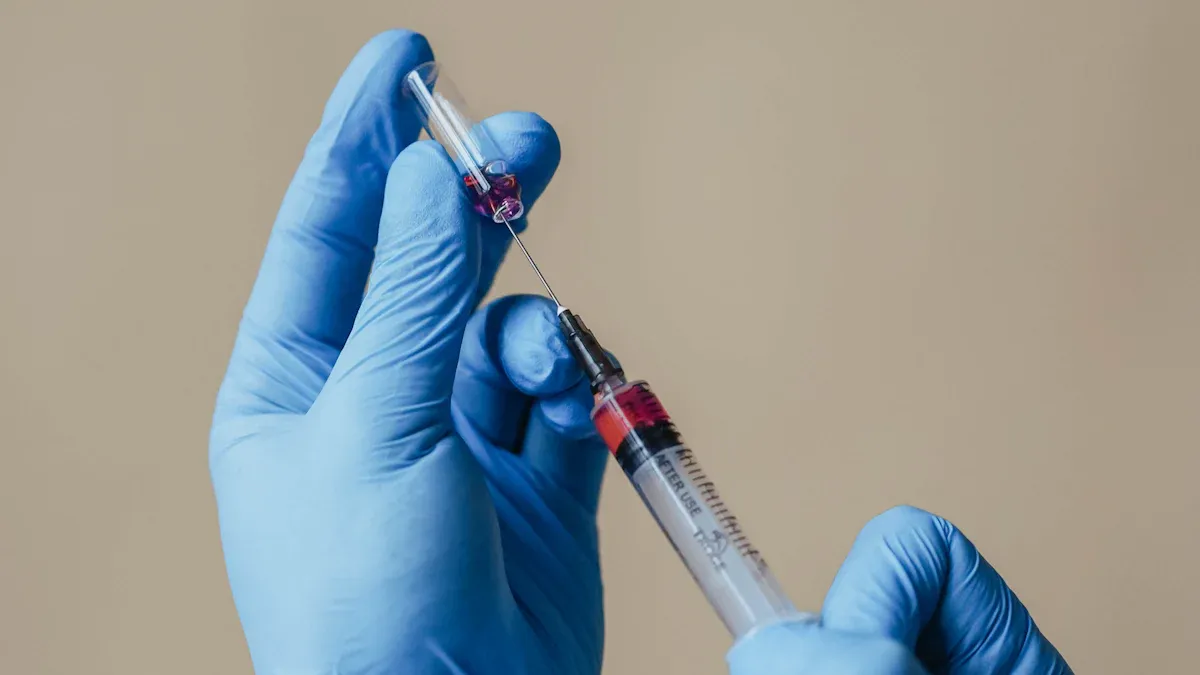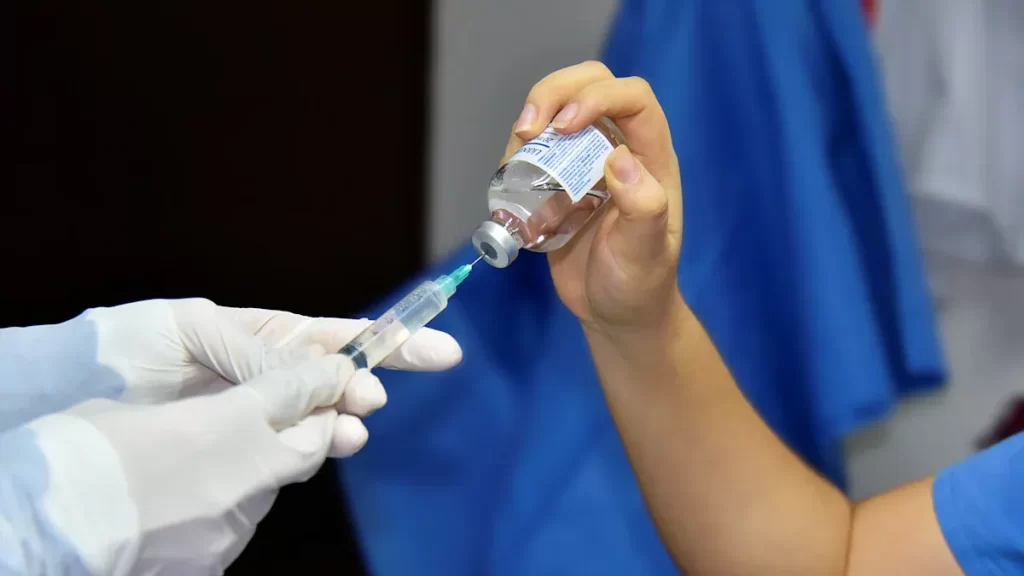News & Events
A Practical Guide to Hepatitis A Antibody Interpretation and Use

You may wonder how to interpret hepatitis A antibody results and use them in real-life situations. Understanding these results helps you make better decisions for diagnosis, management, and prevention of hepatitis. Hepatitis A remains a global concern. In 2019, there were nearly 159 million cases worldwide, as shown in the table below:
| Year | Global Incidence (millions) |
|---|---|
| 1990 | 139.54 |
| 2019 | 158.94 |
In the United States, 2023 saw 1,648 reported hepatitis A cases, with higher rates among adults aged 30–39 years. Accurate hepatitis A antibody testing guides you and your patients toward safer health choices.
Key Takeaways
- Hepatitis A antibody testing is essential for diagnosing current or past infections and determining immunity. Use it to guide patient care and prevention strategies.
- Always consider clinical symptoms and patient history alongside test results. A positive IgM indicates a recent infection, while a positive IgG shows immunity.
- Repeat testing if initial results are negative but suspicion remains. Antibodies may take time to appear, especially in early infections.
- Vaccination is the best prevention against hepatitis A. Follow guidelines to immunize at-risk populations and educate patients on hygiene practices.
- Report all confirmed hepatitis A cases promptly to help control outbreaks and protect public health.
Hepatitis A Antibody Testing

Why Testing Matters
You play a key role in protecting your patients from hepatitis A. Hepatitis A antibody testing helps you find out if someone has a current or past infection. This testing also helps you know if a person is immune to the hepatitis A virus. You can use these results to guide diagnosis and prevention.
Hepatitis A antibody testing is crucial in clinical practice for several reasons. When you detect IgM antibodies, you know the patient has a recent infection. This helps you make a quick diagnosis and start the right management. If you find IgG antibodies, you learn about the patient’s immune response and possible immunity. You often need only one blood sample to get these answers, which makes the process easier for you and your patients.
When to Test
You should consider hepatitis A antibody testing in several clinical situations. Look for signs and symptoms that may point to hepatitis A. These include fever, abdominal pain, headaches, and diarrhea. Sometimes, you may see elevated liver enzymes or a rash. If you notice these symptoms, testing can help you confirm the diagnosis.
Tip: Always repeat testing if the first result is negative but you still suspect hepatitis A. Sometimes, antibodies appear later in the course of infection.
Testing is also important for people who may have been exposed to the virus or belong to high-risk groups. Here are some common reasons to order hepatitis A antibody testing:
- The patient shows signs or symptoms of hepatitis A infection.
- The patient thinks they may have been exposed to hepatitis A virus.
- The patient belongs to a high-risk group, such as people who use or inject drugs, people experiencing homelessness, or men who have sex with men.
You should also consider hepatitis A antibody testing for certain patient populations. The table below shows groups where testing is most often recommended:
| Patient Population | Recommendation for Testing |
|---|---|
| Chronic Liver Disease (CLD) | Antibody screening to identify immunity |
| Chronic Hepatitis C | Antibody screening prior to vaccination |
| Older Adults | Important due to higher background rates |
| Foreign-born Patients | Higher exposure rates necessitate testing |
| African Americans | Highlighted as a group needing testing |
By understanding when and why to use hepatitis A antibody testing, you can improve clinical care and help prevent the spread of hepatitis A.
Types of Hepatitis A Antibody Tests
When you order hepatitis A antibody testing, you will see three main types: IgM, IgG, and total antibody tests. Each test gives you different information about hepatitis A infection, immunity, and exposure.
IgM Antibody
The IgM antibody test helps you find out if someone has a current or recent hepatitis A infection. This test looks for IgM antibodies that your body makes soon after the hepatitis A virus enters your system.
- The IgM antibody test detects IgM antibodies specific to hepatitis A virus.
- A positive result means the person has a current or recent infection.
- IgM antibodies usually appear about 4 weeks after infection.
- These antibodies stay in the blood for about 3 to 6 months after symptoms start.
- Most people lose IgM antibodies by 120 days, but some may stay positive for over 200 days.
Note: The IgM test is the main tool for diagnosing acute hepatitis A. You should use it when you suspect a new infection.
IgG Antibody
The IgG antibody test tells you if someone has immunity to hepatitis A. This immunity can come from a past infection or from vaccination.
- The IgG antibody test shows if a person has immunity to hepatitis A.
- IgG antibodies appear after infection or vaccination and stay in the blood for many years.
- If you see IgG antibodies, the person is protected from hepatitis A, even if they never had symptoms.
- Studies show that these antibodies can last for more than 10 years after vaccination.
Tip: If you want to check for long-term protection, use the IgG antibody test.
Total Antibody
The total hepatitis A antibody test measures both IgM and IgG antibodies. This test helps you find out if someone has ever been exposed to the virus or has been vaccinated.
| Aspect | Description |
|---|---|
| Test Purpose | Measures antibodies to hepatitis A virus in the blood |
| Indication of Results | Shows past exposure or vaccination status |
| Clinical Use | Used for screening, diagnosis, and checking immunity status |
You can use the total antibody test in clinical practice to screen patients, confirm past infection, or check if someone needs vaccination. This test supports your decisions about prevention and care.
Interpreting Hepatitis A Antibody Results
Understanding hepatitis A antibody results helps you make the right decisions for your patients. Each test result gives you clues about the stage of hepatitis A infection, immunity, and next steps in care. Here is how you can interpret each type of result.
IgM Results
When you see a positive IgM result, you should think about acute or recent hepatitis A infection. IgM antibodies appear early after the hepatitis A virus enters the body. These antibodies usually show up about four weeks after exposure and stay in the blood for three to six months.
Step-by-step approach to IgM results:
- Check if the patient has symptoms of hepatitis, such as fever, jaundice, or abdominal pain.
- Review the patient’s recent history for possible exposure to the virus.
- Use the IgM result together with clinical findings and epidemiological evidence.
Note: A positive IgM result alone does not confirm acute hepatitis A. You should always consider the full clinical picture.
You may see false-positive IgM results. These can happen in people with autoimmune diseases, polyclonal activation of B lymphocytes, or other acute infections like Epstein-Barr virus. Always confirm the diagnosis with other tests if the clinical situation is unclear or if the result persists longer than expected.
| Evidence Type | Description |
|---|---|
| False-Positive Results | Positive IgM results can lead to misdiagnosis and incorrect treatment. |
| Clinical Context | Assess IgM results alongside symptoms and exposure history. |
| Diagnostic Confirmation | Use other diagnostic tools to confirm acute hepatitis A, especially in severe or persistent cases. |
- A positive IgM hepatitis A antibody result suggests acute or recent infection.
- Always consider the patient’s medical history and clinical examination.
- A positive result does not rule out other hepatitis infections.
IgG Results
A positive IgG result tells you that the patient has immunity to hepatitis A. This immunity can come from a past infection or from vaccination. IgG antibodies appear after the acute phase and stay in the blood for many years, often for life.
How to interpret IgG results:
- If IgG is positive and IgM is negative, the patient has immunity and no current infection.
- If IgG is negative, the patient is not immune and may need vaccination.
You can use the IgG result to guide prevention. Patients with positive IgG do not need further vaccination or special precautions against hepatitis A.
Total Antibody Results
The total antibody test measures both IgM and IgG. This test helps you find out if the patient has ever been exposed to hepatitis A or has been vaccinated.
| Result Type | Interpretation |
|---|---|
| Hepatitis A IgG-positive | Previous infection or vaccination; patient is immune to hepatitis A. |
| Hepatitis A IgM-negative | No current acute infection. |
If the total antibody is positive but IgM is negative, you know the patient has immunity from past infection or vaccination. There is no current infection. If both total antibody and IgM are positive, the patient likely has an acute infection.
Common Pitfalls
You may face some challenges when interpreting hepatitis A antibody results. Here are common pitfalls and how to avoid them:
- Relying only on laboratory results: Always use clinical judgment. Symptoms and exposure history matter.
- Misinterpreting false-positive IgM results: Remember that autoimmune diseases, polyclonal B cell activation, and other acute infections can cause false positives.
- Overlooking other hepatitis infections: A positive IgM result does not exclude hepatitis B or C. Consider other causes if the clinical picture does not fit.
- Assuming immunity without checking IgG: Some patients may lose immunity over time. Always confirm with serologic testing if in doubt.
- Not repeating tests when needed: If you suspect hepatitis A but the first test is negative, repeat antibody detection after a few days.
🛑 Tip: Always combine laboratory results with clinical findings for the most accurate diagnosis and management.
Hepatitis A Diagnosis and Management

Acute Infection
You may see patients with symptoms like fatigue, nausea, abdominal pain, or jaundice. These signs often point to hepatitis A. A history of exposure helps you confirm the risk of infection. For diagnosis, you should look for the IgM antibody to HAV. This marker confirms acute HAV infection. Sometimes, the first test is negative. If you still suspect hepatitis A, repeat serologic testing after a few days.
You can use clinical and laboratory findings to support your diagnosis. Here is a table that shows important laboratory results:
| Laboratory Findings | Description |
|---|---|
| Elevated transaminases (ALT or AST) | Indicates liver cell injury |
| Elevated bilirubin levels | Suggests impaired liver function |
| Prolonged prothrombin time | May indicate severe liver dysfunction |
| Hyperammonemia | Can occur in severe cases of liver failure |
You should also check for other hepatitis viruses. Order tests for hepatitis B surface antigen, IgM antibody to hepatitis B core, antibody to HCV, and hepatitis C RNA.
Past Infection or Immunity
If you see a positive IgG result and a negative IgM, the patient has immunity. This can come from past infection or vaccination. You can use the table below to help interpret results:
| Result Type | Interpretation |
|---|---|
| Non-reactive | Lack of immunity to hepatitis A infection |
| Reactive | Vaccination, past infection, or current infection |
A positive total antibody test also shows immunity but does not tell you if the infection is current or past.
Follow-Up Actions
After diagnosis, you should focus on treating hepatitis A with supportive care. Most people recover without special treatment. You should monitor clinical symptoms and liver function. Advise patients to rest, stay hydrated, and avoid alcohol. Watch for signs of severe infection, such as confusion or bleeding. If you see these signs, consider hospital care.
Reporting
You must report all confirmed hepatitis A cases. Every state requires healthcare providers and laboratories to report hepatitis A diagnoses and positive laboratory markers. Some states, like Connecticut, require you to report by mail within 12 hours of diagnosis or strong suspicion. Quick reporting helps control transmission and protects public health.
Prevention and Next Steps
Patient Counseling
You play a key role in hepatitis prevention. When you talk to patients, explain how hepatitis A spreads through contaminated food, water, or close contact. Encourage good hygiene, especially handwashing after using the bathroom and before eating. Remind patients that hepatitis A infection can be prevented with immunization. If someone has hepatitis, advise them to avoid preparing food for others until cleared by a clinical provider. Use clear language to help patients understand their test results and what steps to take next.
Vaccination
Immunization remains the most effective way to prevent hepatitis A infection. You should follow current vaccine recommendations for hepatitis A vaccination. These include:
- Vaccinate all children and adolescents aged 2 to 18 years who have not received the vaccine.
- Give the vaccine to persons aged 1 year or older with HIV.
- Recommend immunization for people with chronic liver disease.
You should also advise vaccination for international travelers, men who have sex with men, and people at risk during outbreaks. Pregnant women at risk and those with chronic hepatitis should also receive the vaccine. Immunization protects both individuals and the community by stopping the spread of hepatitis A.
Infection Control
You can reduce hepatitis transmission by following infection control measures. The table below shows key steps for prevention in clinical and community settings:
| Infection Control Measure | Description |
|---|---|
| Hygiene Practices | Promote regular handwashing and use of portable handwashing stations. |
| Food and Water Safety | Boil or treat water before drinking and ensure food is well-cooked. |
| Vaccination | Recommend immunization for at-risk groups. |
Teach patients and staff about these practices. In clinical settings, always use gloves and proper cleaning methods when caring for patients with hepatitis A infection.
Specialist Referral
Some patients need extra care. Refer patients to a clinical specialist if you see severe hepatitis, signs of liver failure, or unclear test results. Patients with chronic liver disease or other health problems may need more support. A specialist can help with advanced management and prevention strategies. Early referral improves outcomes and helps prevent further infection.
Quick Reference and Resources
Key Points
You can use this section as a quick guide when you interpret hepatitis A antibody results. Always remember to look at the whole clinical picture. Test results alone do not tell the full story. You need to consider the patient’s symptoms, history, and risk factors.
| Key Message | Description |
|---|---|
| Clinical Context | Assess results with the patient’s medical history and clinical examination. |
| Interference | High antibody levels or biotin supplements can cause false-positive results. |
| Testing Limitations | Anti-HAV total antibodies cannot confirm acute hepatitis A; you need specific IgM testing. |
| Positive Result Interpretation | A positive result shows past infection or immunity but does not tell if it is acute or past. |
| Negative Result Interpretation | A negative result does not rule out early acute infection with HAV. |
📝 Tip: If you see a positive result, check if it matches the clinical signs and symptoms. If you see a negative result but still suspect hepatitis, repeat the test after a few days.
You should also know that a positive antibody test can mean either past infection or successful vaccination. A negative result means the person may still be at risk for hepatitis A infection.
Useful Links
You can find more information and guidance from trusted sources. These links offer detailed recommendations for hepatitis antibody testing and interpretation:
- CDC: Hepatitis A Questions and Answers for Health Professionals
- World Health Organization: Hepatitis A
- CDC: Interpretation of Hepatitis A Serologic Test Results
- American Association for the Study of Liver Diseases (AASLD) Practice Guidelines
These resources help you stay updated on clinical best practices and improve your care for patients with hepatitis.
You can improve patient care and protect public health by understanding hepatitis A antibody results. Accurate testing helps you identify who needs vaccination or a booster. The table below shows how correct interpretation supports better outcomes:
| Benefit | Impact |
|---|---|
| Identifies immunity | Guides vaccination decisions |
| Detects acute infection | Supports early treatment and reporting |
| Informs public health | Helps prevent outbreaks |
- Vaccination programs work best when you know who is immune.
- Good sanitation and safe water practices reduce the spread of hepatitis A.
- Use this guide for future questions, and ask a specialist if you face a complex case.
FAQ
What does a positive hepatitis A IgM result mean?
A positive IgM result shows you have a recent or current hepatitis A infection. You should see your doctor for advice and follow-up. IgM antibodies usually appear soon after infection and fade after a few months.
Can you get hepatitis A again after recovery or vaccination?
No, you cannot get hepatitis A again if you have recovered or received the vaccine. Your body keeps IgG antibodies, which protect you from future infections. Vaccination gives long-lasting immunity.
How soon after exposure should you get tested for hepatitis A?
You should wait at least two to four weeks after exposure before testing. This time allows your body to make enough antibodies for the test to detect. Early testing may give a false negative.
Do you need the hepatitis A vaccine if your IgG is positive?
No, you do not need the vaccine if your IgG is positive. This result means you already have immunity from past infection or vaccination. Your doctor can confirm your protection.
What should you do if you have been exposed to hepatitis A?
Tip: Wash your hands well and avoid sharing food or drinks. See your doctor as soon as possible. You may need the hepatitis A vaccine or immune globulin within two weeks of exposure to lower your risk.

